Do Racehorses Understand Winning or Losing? Insights From the Track
The Short Answer: After spending years riding and training young Thoroughbreds at the racetrack, I can tell you that racehorses don’t understand winning or losing the way humans define victory. However, the best racehorses absolutely possess a competitive drive—a desire to outrun the horses around them. They respond intensely to the energy of competition, the excitement of their handlers, and the thrill of running at full speed alongside other horses.
As a former track rider who spent countless early mornings galloping young fillies down the two-furlong “beach,” I witnessed firsthand how some horses simply had that killer instinct—the will to beat every horse in sight. This wasn’t about understanding podiums or prize money; it was something deeper, more primal, and utterly thrilling to experience.
My Experience Riding Racehorses: What I Learned About Competition
Before we dive into the science and psychology, let me share what shaped my understanding of racehorse mentality.
For about a year, I woke at dawn to ride young Thoroughbreds. Being small, I was assigned the young, spirited fillies—the ones who were “a little bit crazy,” as we’d say at the track. My job was to canter them down the training track while their trainer watched, timing their workouts and assessing their progress.
The routine was always the same: shorten the stirrups just before entering the chute, quickly bridge my reins, and brace myself as these young athletes launched forward with explosive energy, with me standing high in my short stirrups. My instructions were usually strict: keep them at a fast canter when all they wanted was to fly down the track out of control.
But the most revealing moments came when I got to run horses on the grass against a jockey. That’s when I saw it clearly—these horses weren’t just running; they were competing. They wanted to beat the horse next to them. Their ears would pin back, their stride would lengthen, and you could feel the shift in their entire body as they dug deeper to gain ground on their competitor.
The Horses That Had “It”
Two of my favorite jumpers later in life were former champion racehorses, and both embodied that competitive fire:
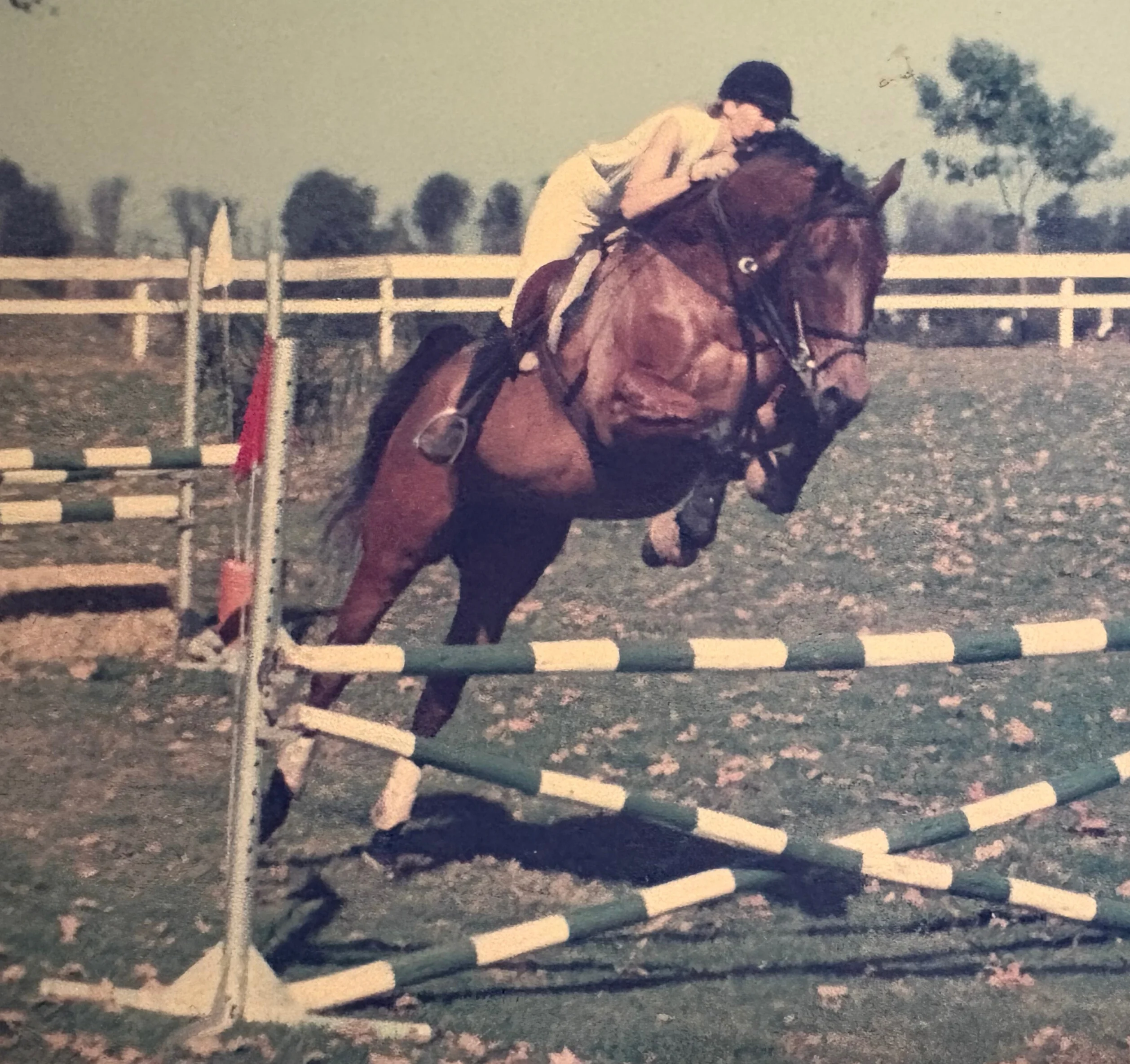
Charming Harry was a massive 17-hand tiger of a horse who tackled everything with tremendous gusto. As a champion sprinter, he’d won top races, and that winning mentality never left him. Whether on the racetrack or over fences, he approached every challenge with the same intense determination.
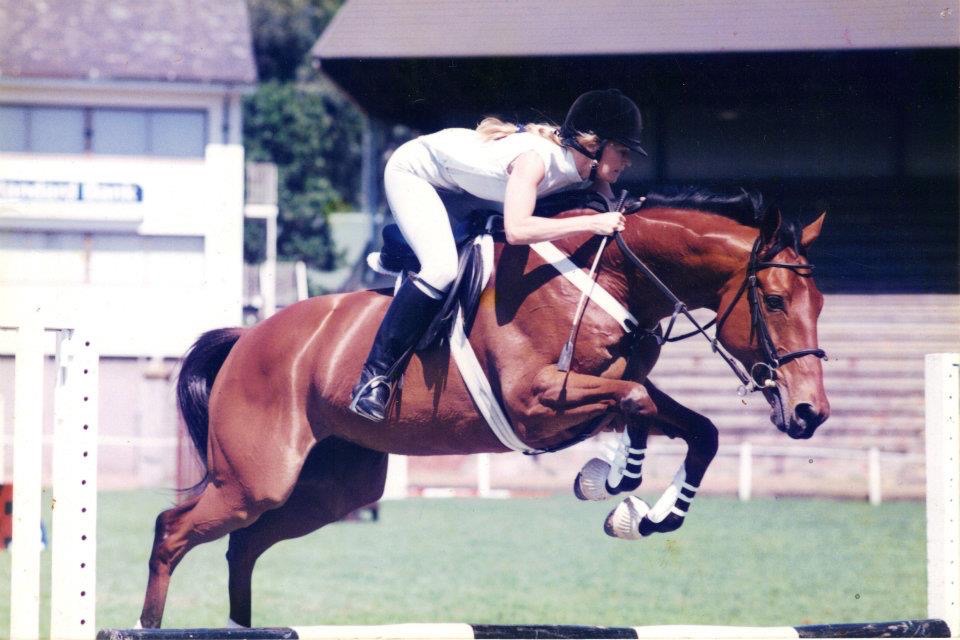
Sacred Pool, a champion long-distance racehorse, had that same quality—a will to win that was almost tangible. Both horses possessed something beyond training or conditioning: an innate competitive drive that set them apart.
This experience taught me that while horses might not understand the human concept of “winning a race,” the best ones absolutely understand the thrill of outrunning their competitors.
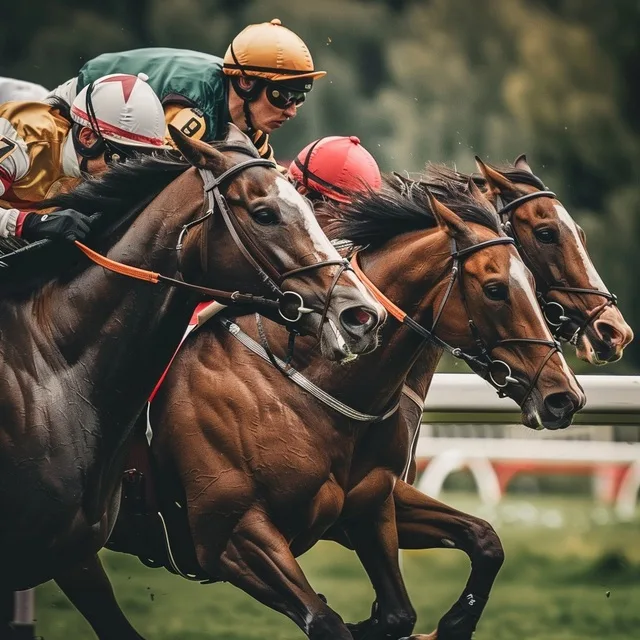
Understanding Equine Intelligence and Competition
Horse racing, a sport as ancient as it is thrilling, captivates us with the sheer display of power, speed, and elegance that racehorses bring to the track. These magnificent animals are the heart and soul of a tradition that spans cultures and centuries. But beneath the spectacle lies an intriguing question: What do racehorses actually understand about the races they run?
How Intelligent Are Horses?
The intelligence of horses is as nuanced as it is fascinating, painting a picture of creatures far more complex than mere athletic competitors. Recognized for their ability to discern patterns, understand nuanced commands, and remember intricate courses or routines, horses exhibit a level of cognitive ability that demands respect and careful consideration.
Equine intelligence shines particularly in social interactions. Within a herd, horses establish intricate hierarchies and roles, communicating through a sophisticated language of body signals and vocalizations. This social structure is not only fundamental to their survival in the wild but also plays a crucial role in their interactions within human environments and competitive settings.
The Emotional Range of Racehorses
The emotional capacity of horses is equally remarkable. They experience a wide spectrum of emotions, from the stress of separation anxiety to the excitement of play or competition. Observations and studies suggest that horses can feel frustration, contentment, and possibly even more complex emotions such as pride in accomplishment or disappointment in failure.
The visible signs of stress or relaxation in a horse—from the tension in their muscles to the softening of their eyes—provide a window into their emotional state. This sensitivity demands a thoughtful and empathetic approach to their training and care.
Moreover, the concept of emotional contagion, where the emotional state of one horse affects others around it, highlights the sensitivity of these animals to the feelings of their peers and human companions. This interconnectedness underscores the importance of a positive environment in the training and racing of horses.
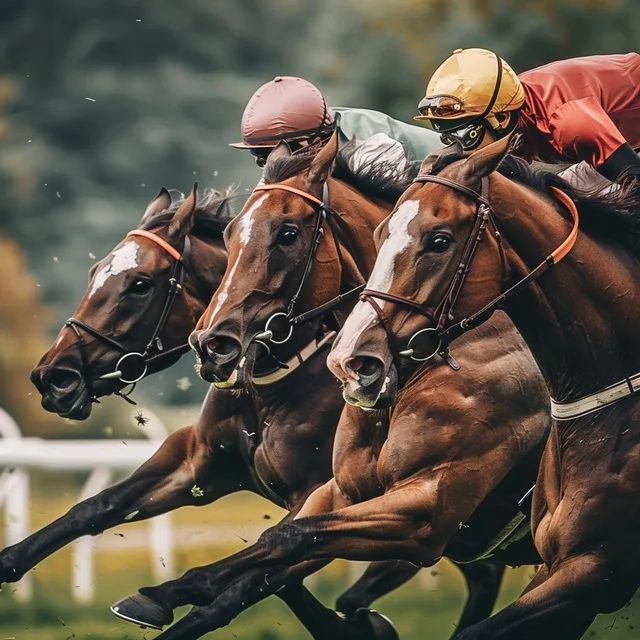
The Nature of Competition in Horses
Natural Instincts for Dominance
At the heart of the horse’s natural world lies a web of instincts that govern behavior, social interaction, and survival. Among these instincts, the drive for dominance within a herd presents a fascinating parallel to competitive behavior observed in racing.
In the wild, positions within the herd hierarchy are established and maintained through displays of strength, agility, and sometimes confrontation. This natural inclination towards establishing a pecking order is a cornerstone of equine social structure, ensuring the smooth operation of herd dynamics.
The instinct for dominance, while rooted in the need for order and leadership, serves as a precursor to competitive behavior. Horses are keenly aware of their standing within the group, responding to challenges and asserting themselves in various situations. This inherent desire to establish position can be channeled into competitive pursuits, such as racing, where the dynamics mirror natural instincts to outrun and outperform rivals.
How Training Shapes Competition
Training plays a pivotal role in honing these natural instincts towards the specific demands of racing competitiveness. Through careful and systematic training, a racehorse’s natural abilities are refined and focused, transforming raw speed and agility into the precision required on the racetrack.
The relationship between horse and trainer is key in this transformation. A skilled trainer recognizes and nurtures the individual horse’s instincts and temperament, guiding them to express their competitive nature in a controlled and effective manner. This includes not just physical training but also mental and emotional preparation.
The environment in which a racehorse is trained and competes further amplifies these competitive instincts. Exposure to the sights, sounds, and atmosphere of the racetrack prepares the horse for the high-energy environment of race day, where the instinct to run, compete, and strive for dominance is at its peak.
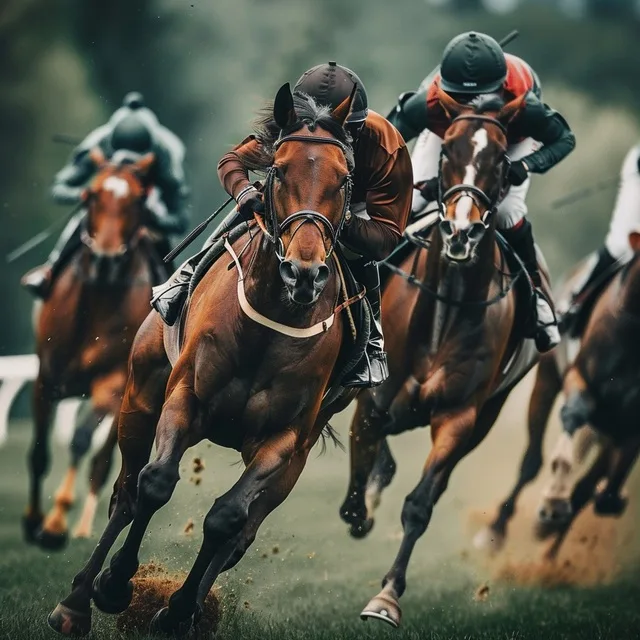
What Trainers and Jockeys Observe After Races
The racetrack is not just a venue for competition; it is a rich tapestry of interactions and emotions, where the subtleties of equine behavior are on full display. Trainers, jockeys, and equine behaviorists, through years of close observation, have gathered insights that reveal the complex emotional landscape of racehorses.
Behavioral Changes After Winning vs. Losing
One notable observation is the change in a horse’s demeanor after a race, which can vary significantly depending on the outcome. Victorious horses often exhibit signs of elevated spirits, such as pricked ears, a lively step, and an overall alert and bright appearance, which could be interpreted as a form of pride or satisfaction.
Conversely, horses that do not perform as expected might display signs of subdued behavior, including lowered heads, less interaction with their handlers, and a general decrease in energy, possibly reflecting disappointment or fatigue.
However, it’s crucial to understand that these responses are likely more connected to the energy and emotions of their human handlers than to an abstract understanding of “victory.” A horse picks up on celebration, praise, and positive energy—these become associated with the racing experience.
The Impact of Crowd Energy
The energy of the crowd is another significant factor influencing racehorse behavior. Horses, with their acute sensitivity to their environment, can pick up on the excitement, tension, and anticipation emanating from spectators. This collective energy can heighten a horse’s arousal level, potentially enhancing their performance by tapping into their natural flight or fight response.
Furthermore, the presence of other horses on the track activates the innate herd dynamics inherent in all equines. Racehorses, trained to focus and perform amid a group, often exhibit competitive behavior that mirrors their natural instincts. This can be seen in the way horses jostle for position, assert their presence, and respond to the movements of their competitors.
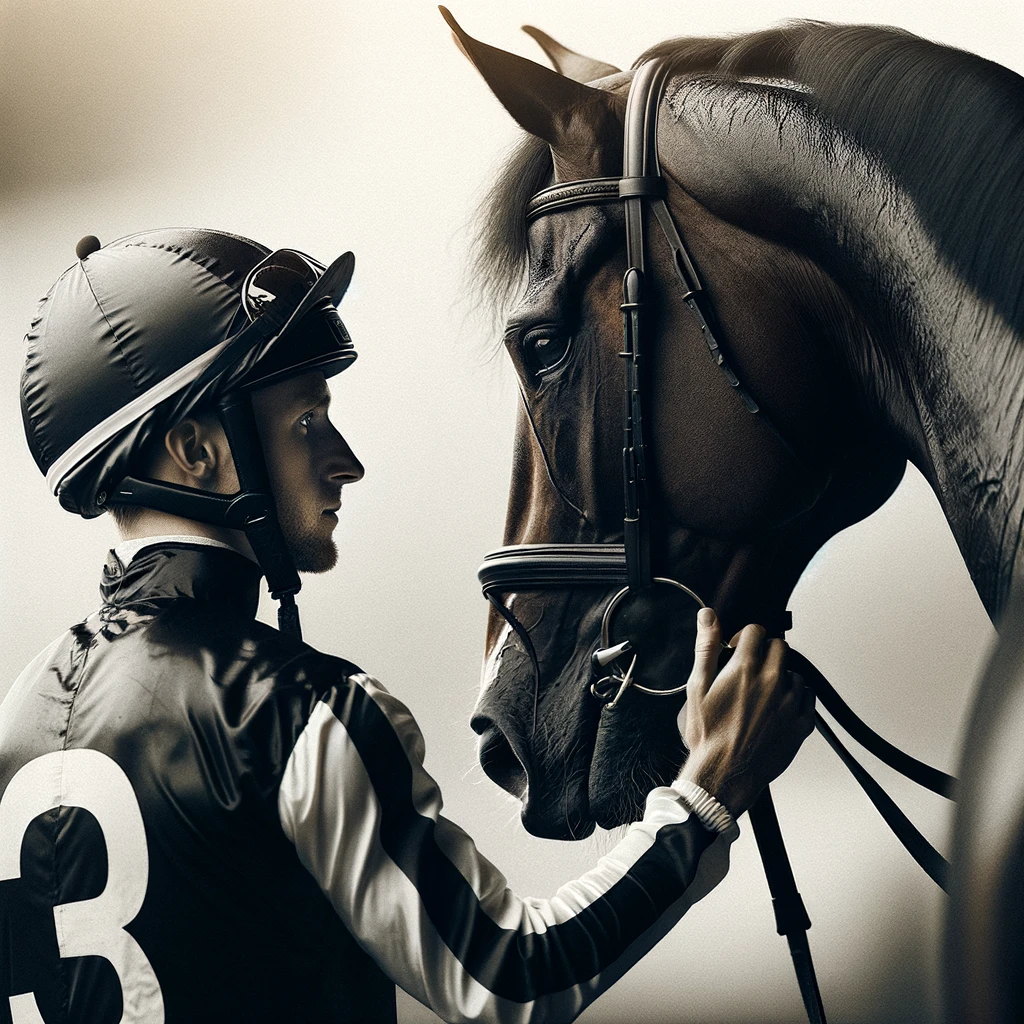
The Critical Role of the Horse-Rider Bond
Understanding the Partnership
Diving into the profound bond between horse and rider unveils a remarkable journey of partnership, communication, and mutual understanding that is both intricate and deeply moving. This connection, forged over countless hours of training and shared experiences, goes beyond the mere mechanics of riding or racing.
The foundation of this bond is built on trust and respect, with each party learning to read and respond to the other’s cues. A rider’s gentle nudge, a slight shift in weight, or a reassuring touch can communicate volumes to a horse, guiding their actions while providing comfort and confidence.
How Human Emotion Influences Horses
The role of human emotion in this partnership cannot be overstated. Horses, as highly sensitive and perceptive beings, are attuned to the emotional states of their human counterparts. The joy, disappointment, excitement, or frustration felt by a jockey or trainer does not go unnoticed by their equine partner.
After a race, the human response to winning or losing can significantly influence a horse’s perception of the event. Celebratory gestures, positive reinforcement, and an overall atmosphere of satisfaction can reinforce a sense of achievement, possibly making the horse more eager and confident in future competitions.
Conversely, overt expressions of disappointment or frustration following a less successful outing might impact a horse’s morale. Horses can pick up on these emotional cues, leading to potential stress or anxiety, which underscores the importance of maintaining a positive, supportive demeanor regardless of the race outcome.
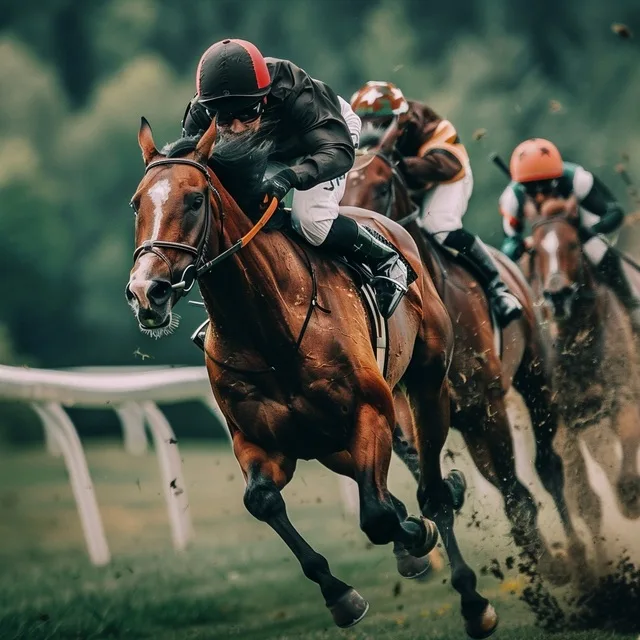
The Science Behind Equine Racing Psychology
What Research Tells Us
Exploring the realm of equine cognition through scientific research offers a fascinating glimpse into the minds of these noble creatures, especially in the context of competition. While direct studies on racehorses’ understanding of winning or losing are sparse, broader research into equine intelligence, social behavior, and emotional responses provides valuable insights.
Scientific investigations have shown that horses possess a remarkable ability to recognize and remember individuals, both human and equine, suggesting a level of social awareness that influences their behavior in competitive settings. Studies have demonstrated horses’ capabilities to learn complex commands, navigate obstacles, and adapt to changing situations, indicating problem-solving skills and adaptability.
Research into equine emotions has revealed that horses can experience a range of feelings, such as stress, fear, relaxation, and possibly even joy. The observation of stress indicators in horses—such as increased heart rate, cortisol levels, and specific behaviors like head tossing or tail swishing—offers a window into their emotional state during and after competitions.
The Challenges of Interpretation
However, the interpretation of these scientific insights is fraught with challenges. One major limitation is anthropomorphic bias, where human emotions and motivations are attributed to animals, potentially skewing observations and conclusions. Additionally, the subjective nature of assessing emotions in animals, combined with the inability of horses to verbally communicate their feelings, makes it difficult to definitively understand their perception of competition.
Another challenge is the variability in individual horse personalities and temperaments, which can significantly influence their response to training, competition, and interaction with humans. This individual variability means that broad generalizations about equine cognition and emotion must be approached with caution.
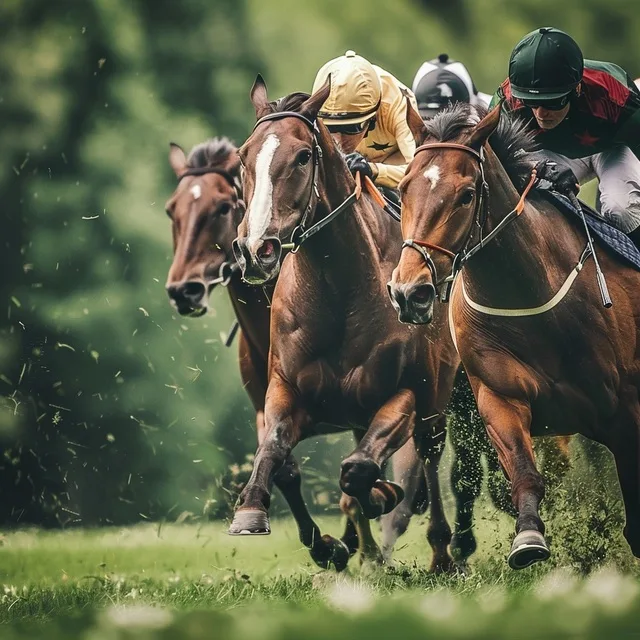
The Science Behind Equine Racing Psychology
What Research Tells Us
Exploring the realm of equine cognition through scientific research offers a fascinating glimpse into the minds of these noble creatures, especially in the context of competition. While direct studies on racehorses’ understanding of winning or losing are sparse, broader research into equine intelligence, social behavior, and emotional responses provides valuable insights.
Scientific investigations have shown that horses possess a remarkable ability to recognize and remember individuals, both human and equine, suggesting a level of social awareness that influences their behavior in competitive settings. Studies have demonstrated horses’ capabilities to learn complex commands, navigate obstacles, and adapt to changing situations, indicating problem-solving skills and adaptability.
Research into equine emotions has revealed that horses can experience a range of feelings, such as stress, fear, relaxation, and possibly even joy. The observation of stress indicators in horses—such as increased heart rate, cortisol levels, and specific behaviors like head tossing or tail swishing—offers a window into their emotional state during and after competitions.
The Challenges of Interpretation
However, the interpretation of these scientific insights is fraught with challenges. One major limitation is anthropomorphic bias, where human emotions and motivations are attributed to animals, potentially skewing observations and conclusions. Additionally, the subjective nature of assessing emotions in animals, combined with the inability of horses to verbally communicate their feelings, makes it difficult to definitively understand their perception of competition.
Another challenge is the variability in individual horse personalities and temperaments, which can significantly influence their response to training, competition, and interaction with humans. This individual variability means that broad generalizations about equine cognition and emotion must be approached with caution.
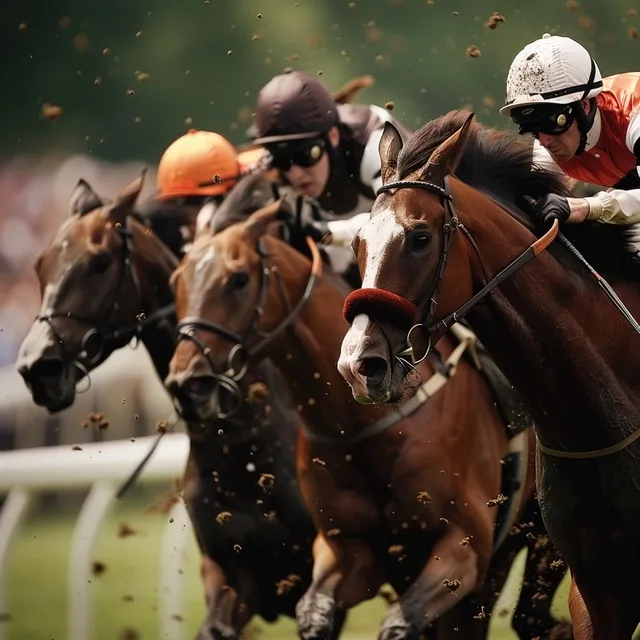
Do Racehorses Actually “Want” to Win?
The Equine Perspective on Competition
Venturing into the realm of equine cognition to understand a racehorse’s perspective on winning or losing requires bridging the gap between observed behavior, scientific research, and the nuanced world of animal emotions.
At the heart of understanding a racehorse’s perspective is acknowledging that their conceptualization of “winning” or “losing” likely diverges significantly from human interpretations. Horses, as prey animals evolved for social living within a herd, exhibit behaviors and responses that prioritize survival, social bonding, and navigation of their immediate environment.
Their cognitive landscape is shaped by instincts, learned experiences, and the dynamics of their interactions with humans and other horses, rather than abstract concepts like victory or defeat.
What “Success” Means to a Horse
Observed behavior in racehorses—such as increased arousal, eagerness at the start line, or visible relaxation and social interactions post-race—suggests a complex emotional and cognitive engagement with their environment. These behaviors may not directly reflect an understanding of winning or losing in human terms but indicate a response to the stimuli, routines, and social cues associated with racing.
The positive reinforcement received from trainers and jockeys after a successful race—through gestures of affection, verbal praise, or treats—is perceived by the horse as a desirable outcome, reinforcing their engagement in racing activities.
Moreover, the concept of success for a racehorse might be rooted more in the quality of their interactions and relationships with humans and other horses. The sense of security, comfort, and positive engagement they experience in their training and racing routines could constitute their version of success.
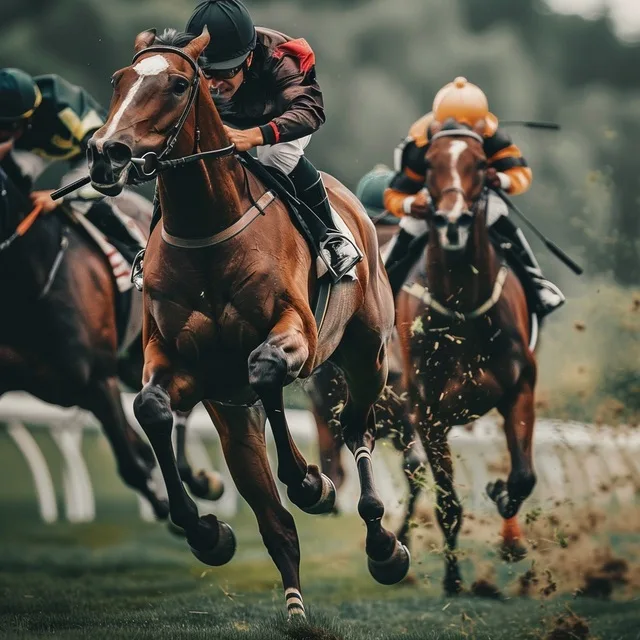
Do horses get excited when they win a race?
Horses often display increased energy and alertness after winning, but this is more likely a response to the celebratory atmosphere and excited reactions of their handlers rather than an understanding of “victory” itself. They respond to positive reinforcement and the heightened energy around them.
Can racehorses feel disappointment after losing?
While horses can certainly experience stress, fatigue, and pick up on subdued energy from their handlers after a poor performance, whether they experience “disappointment” as humans understand it remains unclear. They are highly sensitive to the emotional states of people around them, which can affect their behavior.
Do horses race to please their jockeys or themselves?
It’s likely a combination of both, though not in the way we might imagine. Horses respond to cues from their jockeys and have learned associations between racing and positive outcomes. However, many horses—particularly elite competitors—also seem to possess an innate competitive drive to outrun other horses, which appears separate from human direction.
How do trainers celebrate with winning horses?
Good trainers celebrate victories with calm, positive reinforcement—verbal praise, gentle pats, treats, and a generally upbeat demeanor. The goal is to create positive associations with racing while avoiding over-excitement that might stress the horse. The relationship and trust matter more than any single race outcome.
Do all racehorses have competitive instincts?
No. Just like humans, horses have individual personalities and drives. Some horses possess that “killer instinct” and genuine desire to compete, while others are simply going through the motions. The best racehorses typically have both physical talent and that intangible competitive fire.
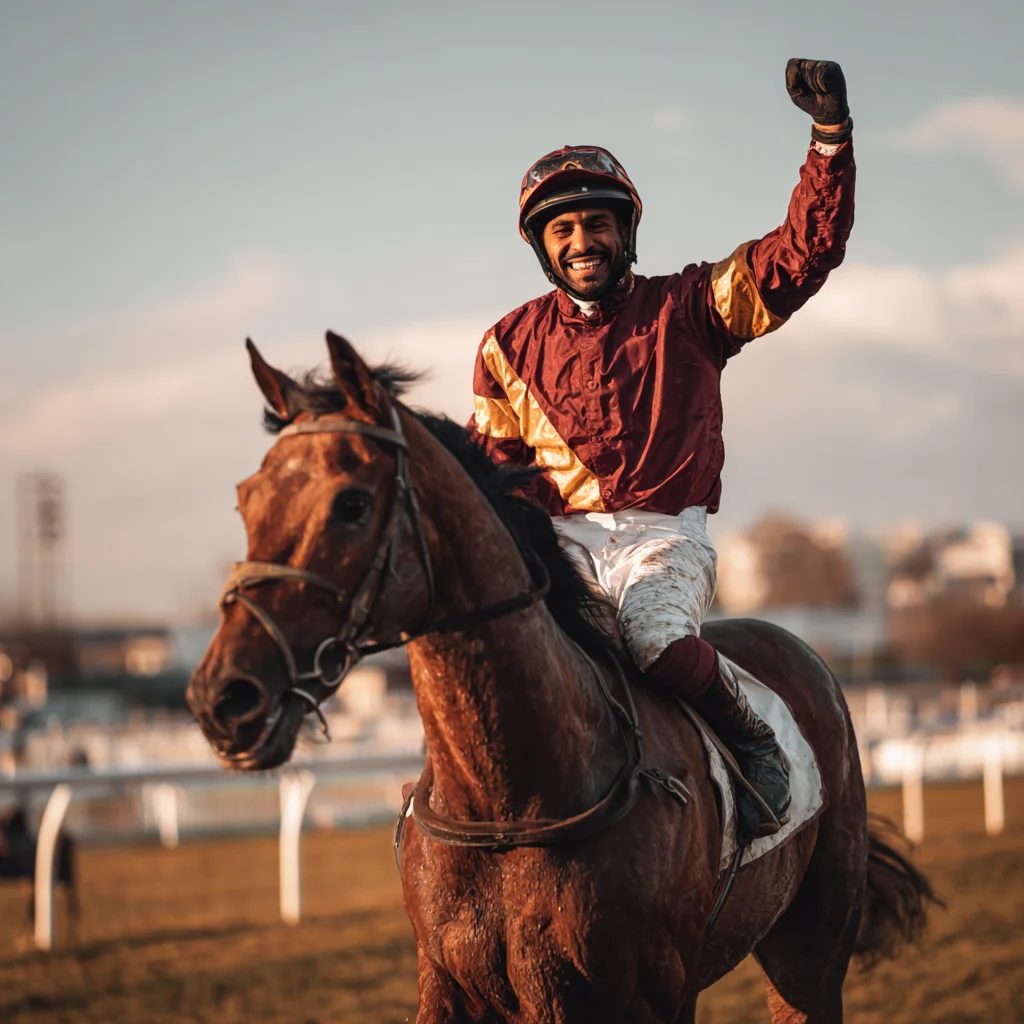
Conclusion: Understanding What Truly Matters
In exploring whether racehorses understand winning and losing, we’ve journeyed through equine intelligence, emotions, competitive instincts, and the nuanced interactions between horses and their human counterparts. The synthesis of scientific research, observed behaviors, and hands-on experience from the track suggests a nuanced truth.
While horses may not comprehend victory and defeat in human terms, their responses to racing environments, emotional cues from humans, and their inherent social and survival instincts play significant roles in how they engage with the sport. The best racehorses do seem to possess a competitive drive—a desire to outrun their rivals—even if they don’t understand the trophy ceremonies that follow.
Understanding equine intelligence and emotions holds profound implications for the welfare and treatment of racehorses. Recognizing the depth of horses’ emotional lives and cognitive capabilities underscores the responsibility of trainers, jockeys, and caretakers to approach their roles with empathy, respect, and a commitment to ethical treatment.
The true joy of horse racing lies not in the fleeting glory of victory but in the shared journey of horse and rider. Each race, each training session, and each moment of quiet companionship strengthens a bond that transcends words—a silent understanding that celebrates the remarkable connection between two very different, yet inextricably linked, beings.
As someone who’s experienced that connection firsthand—feeling a young filly surge forward beneath me, sensing her desire to catch the horse ahead—I can tell you that the relationship matters far more than any single race result. In their trust and companionship, we find our greatest triumphs.
Further resources
- Scientific Journals and Studies:
- Equine Veterinary Journal: Offers peer-reviewed research on horse health and science, including behavior and cognition.
- Journal of Equine Science: Provides open-access articles on various aspects of equine science, including physiology and behavior.
- Applied Animal Behaviour Science: While not exclusively about horses, this journal often features studies on equine behavior and welfare.
- Books:
- “Thinking with Horses” by Henry Blake: Offers insights into equine intelligence and behavior from a renowned expert.
- “The Nature of Horses: Their Evolution, Intelligence and Behaviour” by Stephen Budiansky: Explores the evolution, intelligence, and natural behavior of horses.
- “Equine Behavior: A Guide for Veterinarians and Equine Scientists” by Paul McGreevy: This book is a comprehensive resource on equine behavior, covering both normal and abnormal behaviors and their implications for welfare.
- Websites and Online Resources:
- The Horse: An online magazine that covers a wide range of topics related to horse health, care, and management, including behavior (thehorse.com).
- Equine Research Foundation: Focuses on research and education concerning horse behavior, cognition, and welfare (equineresearch.org).
- International Society for Equitation Science (ISES): Promotes and facilitates research into the training of horses to enhance horse welfare and improve the horse-rider relationship (equitationscience.com).
- Documentaries and Videos:
- “The Path of the Horse” by Stormy May: A documentary exploring the ways humans interact with horses and how alternative methods can foster a deeper bond.
- Educational YouTube channels such as Warwick Schiller’s Journey On and CRK Training often discuss horse behavior, training, and the horse-human connection, offering practical advice alongside theoretical insights.
- Organizations and Associations:
- Equine Behaviour Forum (EBF): A membership organization dedicated to the study of equine behavior, offering resources and a journal to its members (equinebehaviourforum.org.uk).
- American Association of Equine Practitioners (AAEP): Provides resources and position statements on various aspects of horse health and welfare, including behavior (aaep.org).
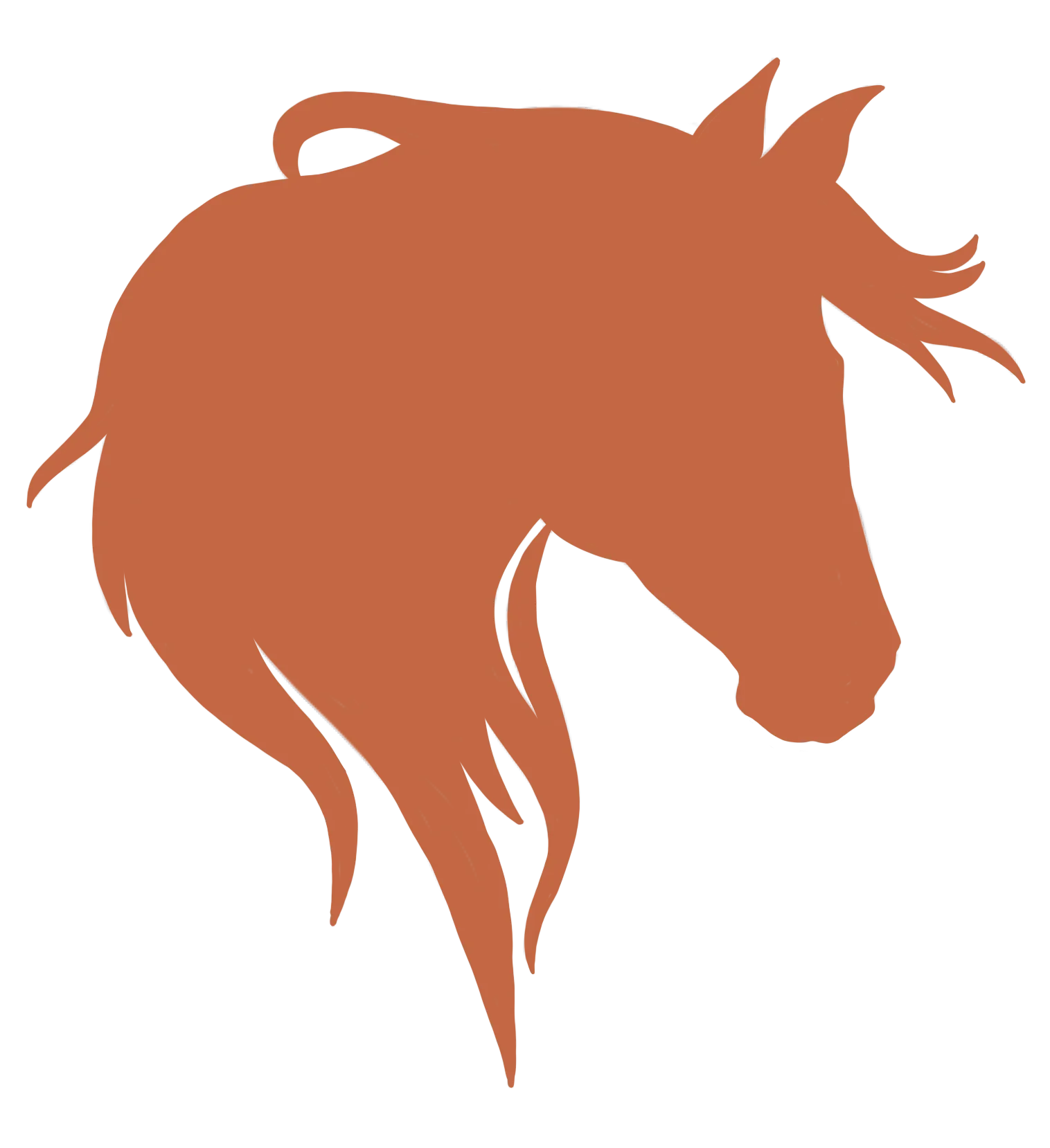
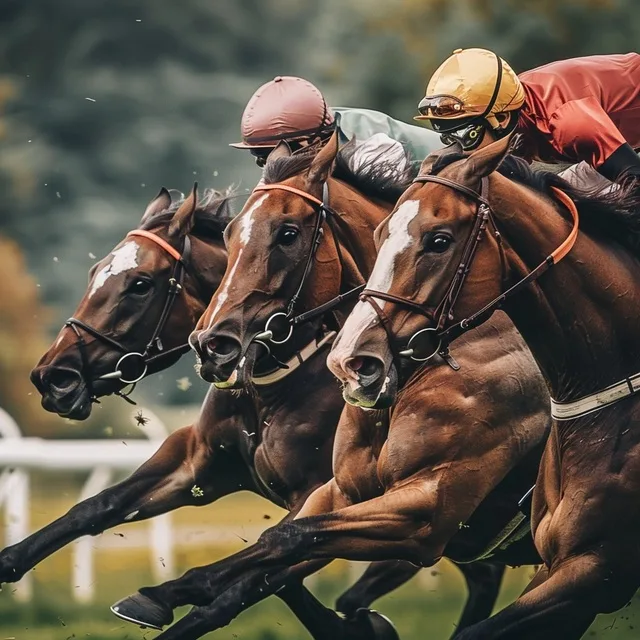
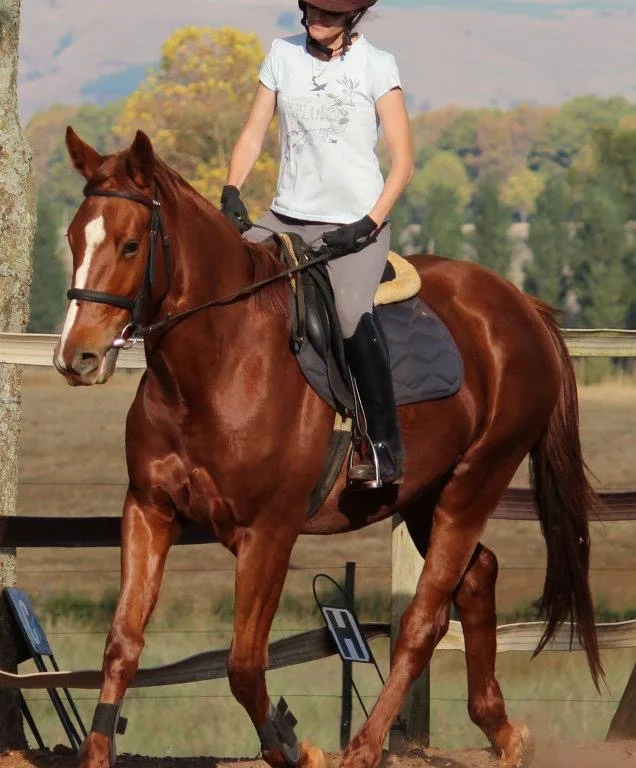
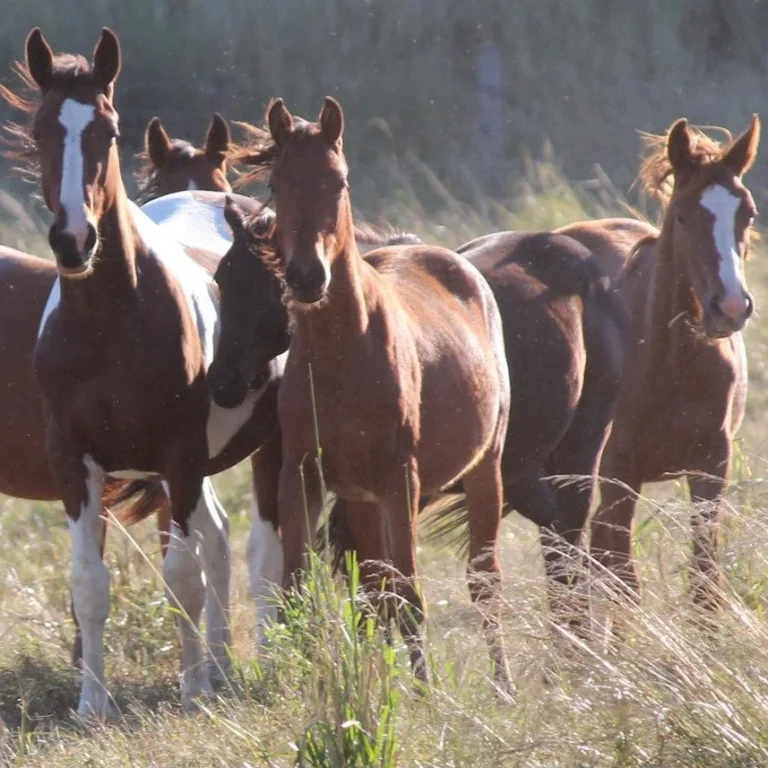
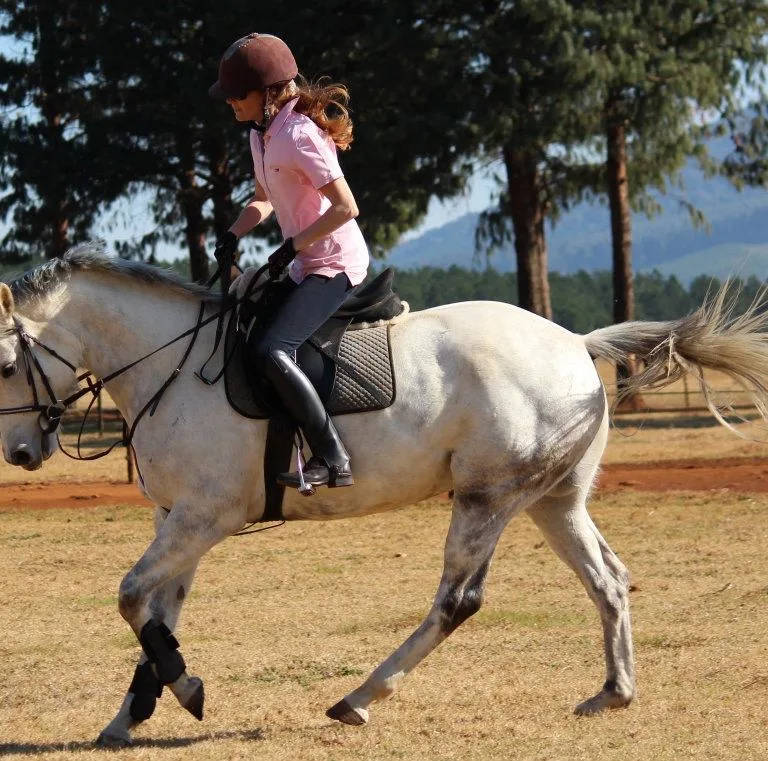
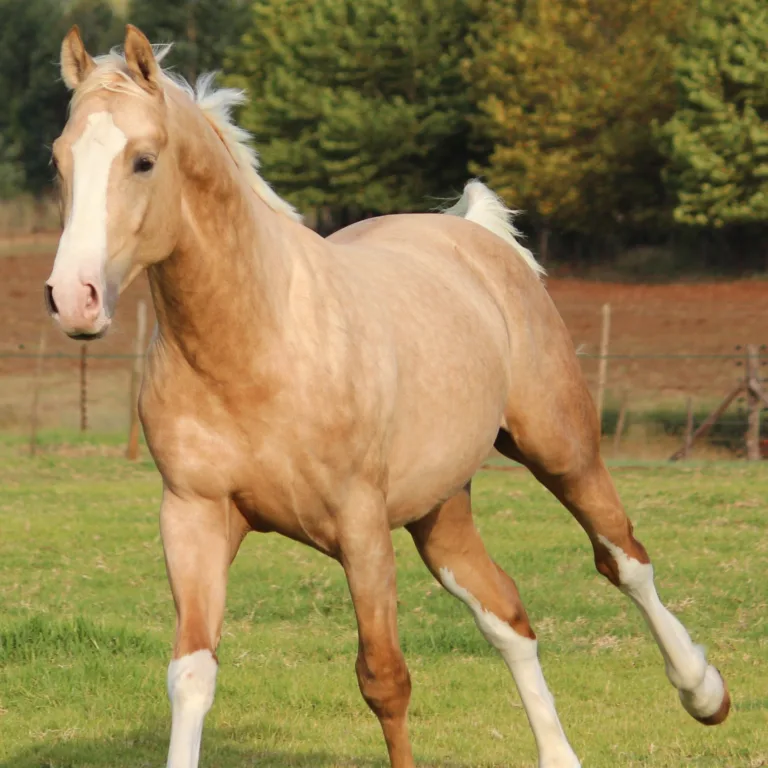
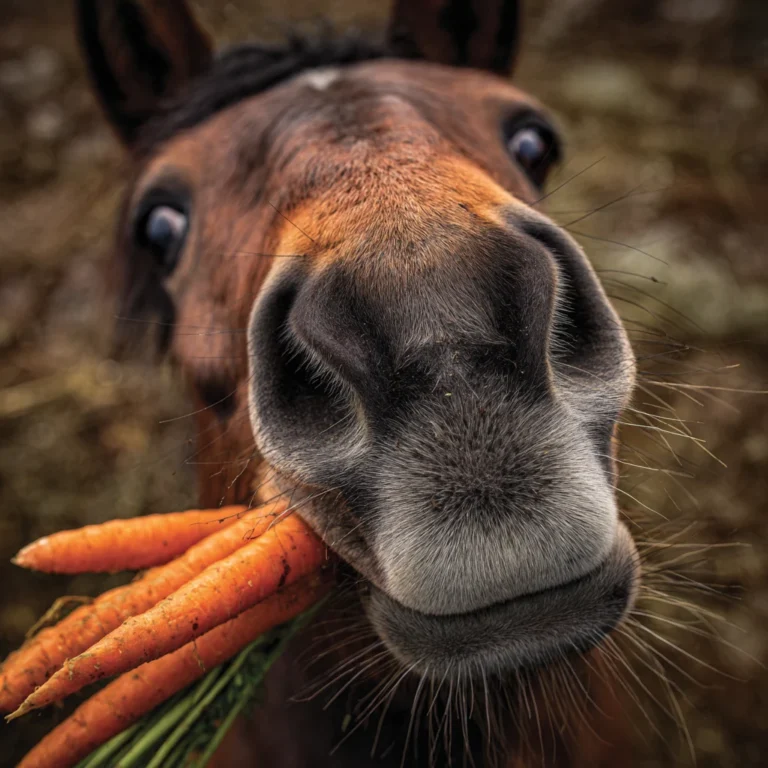
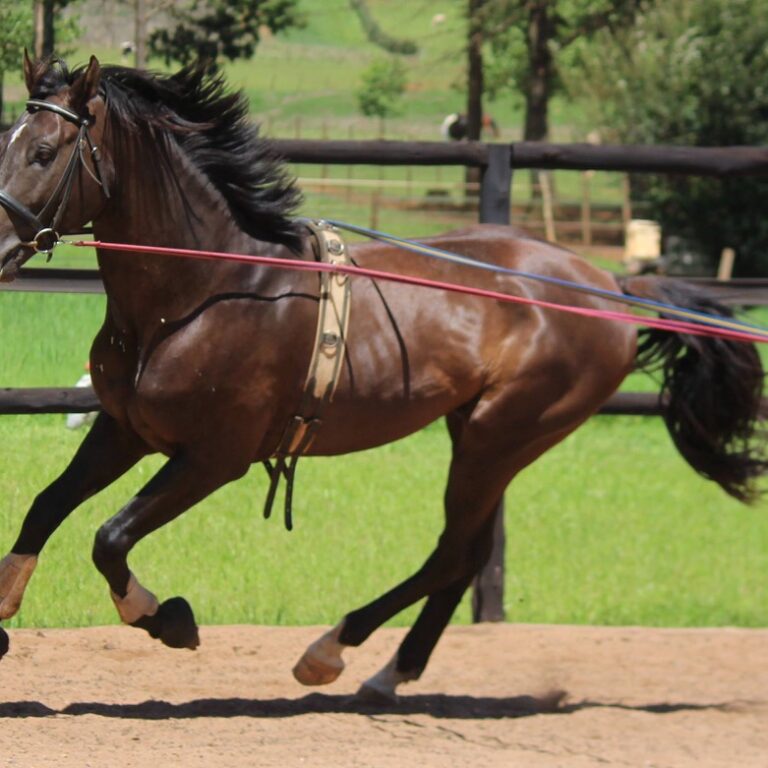
Leave a Reply